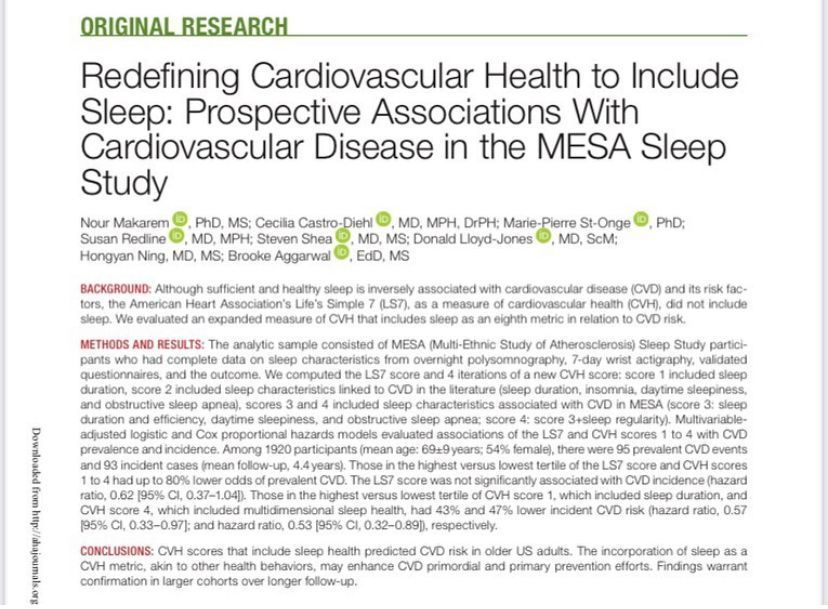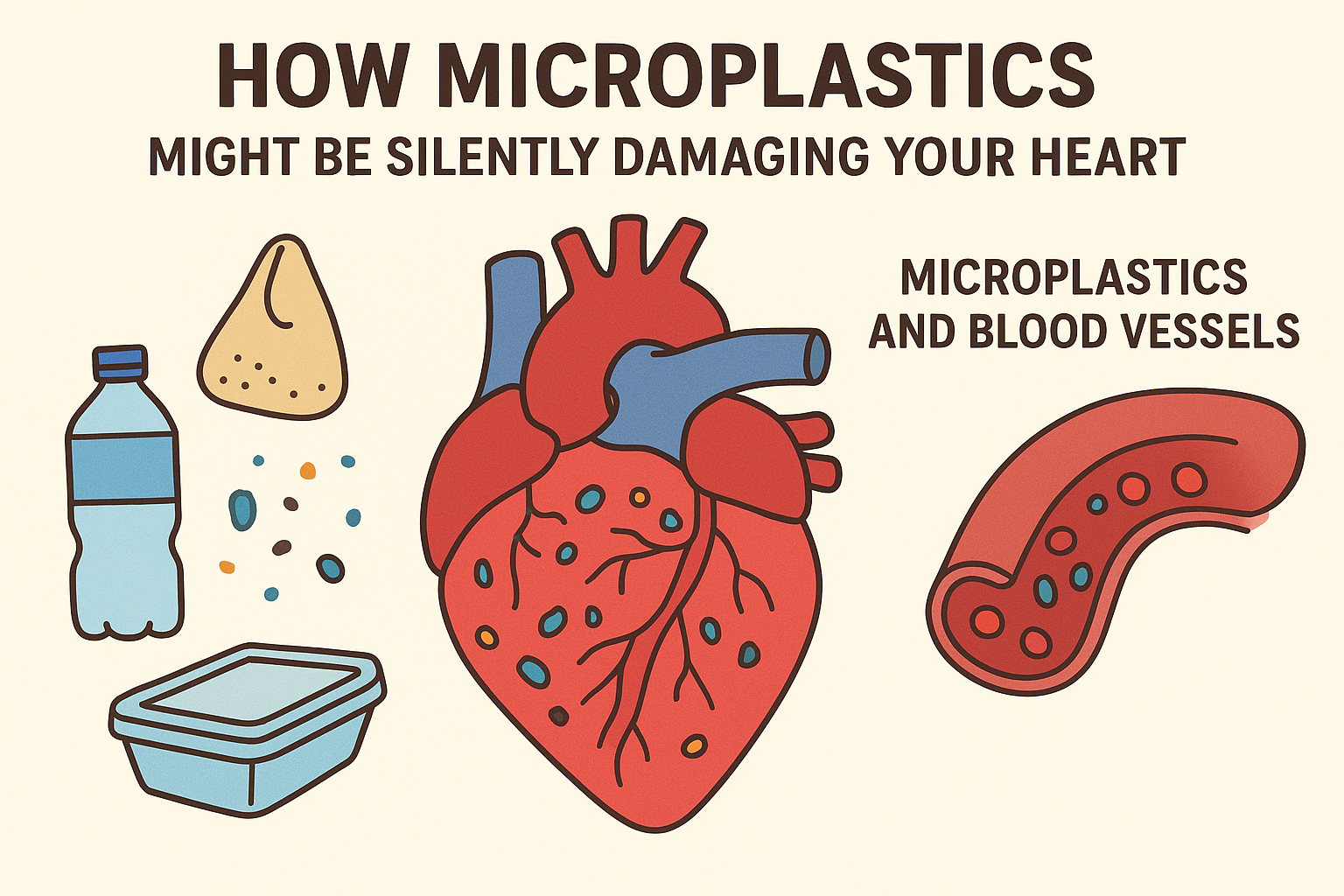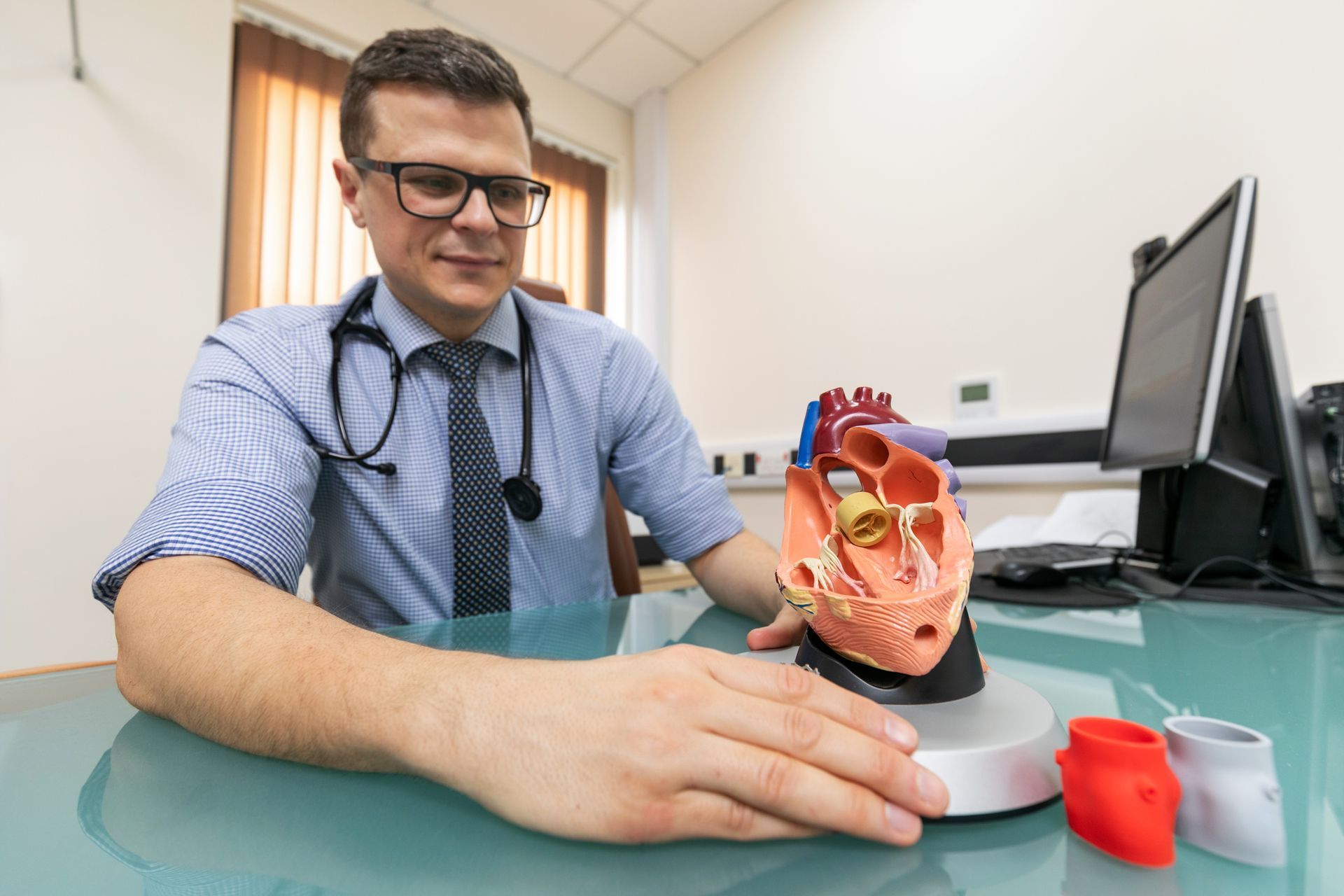SLEEP and Heart Health.

SLEEP has recently been added to American Heart Association 'LIFE's ESSENTIAL 8'.
The recommended
duration of SLEEP is 7 hours or more, but less than 9 hours every night.
The other
7 AHA Essentials include:
- Blood pressure
- Physical activity
- Nicotine exposure
- Blood glucose
- Cholesterol
- Diet
- Body mass index
According to this study (link below) published in the Journal of the American Heart Association in October last year, including sleep health, similarly to other well known risk factors, may improve primary prevention results.
The study included 1920 participants with a mean age of 69+/-9 years, of whom 54% were females.
The follow up lasted 4.4 years and the studied parameters included
not only sleep duration, but also efficiency, daytime sleepiness and history of obstructive sleep apnoea.
https://www.ahajournals.org/doi/10.1161/JAHA.122.025252
Enhancing Heart Health Through Quality Sleep.
Introduction:
Sleep, a fundamental biological process, plays a vital role in our overall health and well-being. Beyond the restorative benefits it provides, sleep has a profound impact on various aspects of cardiovascular health. Below is described a relationship between sleep and heart health, investigating the effects of sleep duration, quality, and disorders on cardiovascular function. By understanding the importance of sleep for our hearts and implementing healthy sleep habits, we can proactively promote heart health and reduce the risk of cardiovascular diseases.
Main Text:
I. The Connection Between Sleep Duration and Heart Health:
Adequate sleep duration is crucial for maintaining optimal cardiovascular health. Research has indicated that both short sleep duration (less than seven hours per night) and long sleep duration (more than nine hours per night) are associated with an increased risk of cardiovascular diseases. Consistently obtaining the recommended seven to nine hours of sleep per night is essential for maintaining a healthy heart.
II. Sleep Quality and its Impact on the Heart:
Not only duration, but also quality of sleep, significantly affects cardiovascular health. Poor sleep quality, characterized by frequent awakenings, difficulty falling asleep, or non-restorative sleep, has been linked to an increased risk of cardiovascular disease.
III. Mechanisms Linking Sleep and Heart Health:
Several underlying mechanisms help explain the connection between sleep and cardiovascular health. Sleep deprivation and poor sleep quality disrupt autonomic nervous system regulation, leading to increased sympathetic activity and decreased parasympathetic activity, which can elevate heart rate, blood pressure, and promote inflammation. Additionally, sleep disturbances can
disrupt the balance of hormones involved in blood pressure regulation and glucose metabolism, further impacting cardiovascular function.
IV. Promoting Healthy Sleep Habits for Heart Health:
Adopting healthy sleep habits is essential for optimizing cardiovascular health. Consider the following tips: a. Establish a regular sleep schedule: Maintain consistent bedtimes and wake-up times, even on weekends. b. Create a conducive sleep environment: Ensure your bedroom is quiet, dark, and at a comfortable temperature. c. Prioritize relaxation: Engage in calming activities before bedtime, such as reading or practicing relaxation techniques. d. Limit
stimulants: Avoid consuming caffeine or engaging in stimulating activities close to bedtime. e. Exercise regularly: Regular physical activity can improve sleep quality, but avoid intense workouts too close to bedtime. f. Practice good sleep hygiene: Avoid electronic devices before bed, and create a wind-down routine to signal to your body that it's time to sleep.
Conclusion:
Sleep plays a vital role in maintaining optimal heart health. Both sleep duration and quality significantly impact cardiovascular function, and insufficient or poor-quality sleep increases the risk of developing cardiovascular diseases. By prioritizing healthy sleep habits, seeking adequate
rest, and addressing sleep disorders promptly, we can nurture our hearts and reduce the risk of cardiovascular problems.
At Winchester private hospital, Sarum Road Hospital and at private hospital in Basingstoke, Candover clinic, we offer private cardiology treatments and private cardiology consultations. Private cardiologist in Basingstoke and Winchester reviews patients every week, which also includes private ECG and private Echocardiograms.











